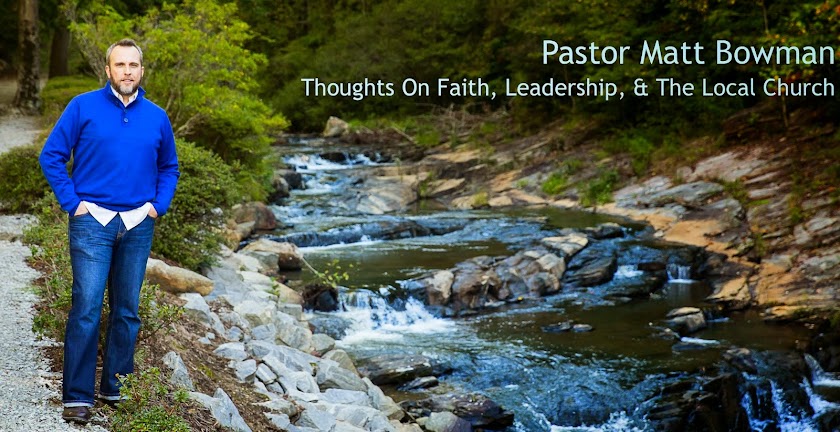"Thank You for the day..."
"Lord bless me..."
"Lord keep me..."
"Lord give me..."
"Lord protect me..."
You get the picture right? Do you notice something about most of our "prayer cliches"? The word "me" tends to find its way in there a whole lot, maybe even to the point of a really unhealthy obsession with me & mine. Don't get me wrong, there's nothing wrong with thanking God for the day or asking God to bless you or protect you. However, if that's the extent of your prayer life, maybe there's a reason why so many of us complain of a dry, uninspiring prayer life. When we look back at how the early church prayed in the book of Acts, it becomes even more convicting. In Acts 4 the actual words of a prayer of the early church is recorded, & sadly, it doesn't sound like my prayers or the prayers I often hear offered up in our congregations.
The background of the passage is that the Gospel is spreading. Peter & John have healed a man & preached the Gospel in the name of Jesus. That attracted the attention of the Sanhedrin, the political & religious elite of Israel, & oh by the way, big opponents of Jesus. The arrest Peter & John, throw them in jail overnight, interrogate them, & threaten them before releasing them. When Peter & John reunite with the other Christ followers, they pray. However, they don't pray like many of us would. They don't pray for wisdom as they formulate a security plan for the apostles. They don't pray for funding so that they bail the apostles out of jail & keep a defense attorney on retainer. Instead in Acts 4:29 they ask God to enable them to speak boldly the name of Jesus. Wait a minute. Don't they already have boldness? Isn't boldness the very thing that landed them in trouble to begin with? Yes, but they pray for even more boldness. However, they're not praying for boldness simply for boldness' sake. They want to be bold so that those who are far from God may be reconciled to God through the Gospel of Jesus. Their prayers were intensely outwardly focused. Their prayers weren't for their own good but for the good of the lost. That's how the early church prayed, & the result was radical unity & an explosive advancing of the Gospel. Is that how we pray? I know for me, the answer is usually a resounding "No". Yet there is a powerful & convicting truth that we should note here:
"How We Pray Indicates Whether We've Strayed."
The early church paved the way for all of us who were to come after. We don't have to emulate every little thing they did, but we should walk in their footsteps of faithfulness. And the way they prayed exposes the weak, timid, & self centered faith that many of us have. Do we pray with intensity & urgency that God would use us mightily so that the lost may be saved? Do we pray that God would enable us to be speak & live boldly in the name of Jesus? Or our are prayers focused on what we want or think we need. What if our prayers for protection are in someway in opposition to God using us for His glory & the salvation of the lost? What if the lost can only be reached by Christ followers living & speaking boldly & therefore risking their material comfort & security?
What do your prayers say about whether or not you've strayed or how far you've strayed?





